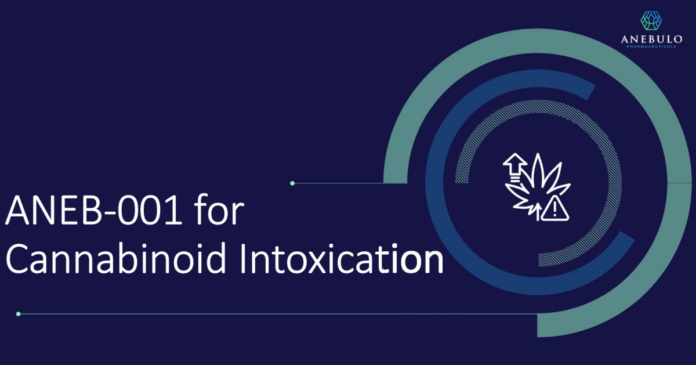A clinical stage biotech company developing novel solutions to addiction is working on an antidote to treat cannabinoid intoxication.
While the cannabinoid CBD doesn’t intoxicate, THC does. With the use of THC-based medical cannabis and legal adult use marijuana products on the rise, so too are cases of unintentional intoxication – particularly in children who get their hands on products that have not been appropriately secured.
The impacts on children of THC intoxication can be unpleasant and significant – tachycardia, nausea, vomiting and respiratory depression. These events can be frightening for a child and lead to other complications.
A study of US National Poison Data System data on cannabis exposures reported to US poison centers for January 2017 through December 2019 found 2505 cases (27.0%) manufactured product exposure cases among children under 10 years old and 1490 plant-based exposures (8.4%). It should be noted that “exposure” doesn’t necessarily lead to a hospitalisation event and it’s not clear the proportion of exposures involving products or materials containing THC.
Antidotes have been developed for intoxicating drugs such as heroin, but there’s nothing yet available for THC.
Texas-based Anebulo Pharmaceuticals is working on it. The company’s ANEB-001 is being developed with the intent to quickly and effectively reverse the negative effects of cannabinoid intoxication within one hour of administration based on its Phase 1a and 1b data. The company said it intended commencing Phase 2 trials of ANEB-001 this year.
But is this a solution to a problem that doesn’t exist? After all, the number of THC overdoses resulting in death is, as far as we’re aware – zero.
There is a place for it – the company notes the number of cannabis associated emergency department visits surpassed 1.7 million in 2019. Even in non-potentially life threatening events, these patients have been taking up emergency department space while waiting to become clinically sober. More seriously, there have been instances where children have required intubation and an antidote could avoid this.
There also appears to be significant demand from doctors. Anebulo states a survey of emergency room physicians shows on a scale of 0 (no need) to 10 (significant need), physicians scored on average 7.52.


